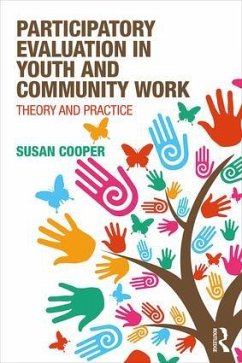
Participatory Evaluation in Youth and Community Work
Theory and Practice
Versandkostenfrei!
Versandfertig in 1-2 Wochen
168,99 €
inkl. MwSt.

PAYBACK Punkte
84 °P sammeln!
This book brings together the theory and practice of evaluation in youth and community work to offer a timely and thorough exploration of how evaluation, professionalism and practice intersect. It looks at the complexities of evaluating in practice and assesses the challenge of evidencing the difference that youth and community work can make.














